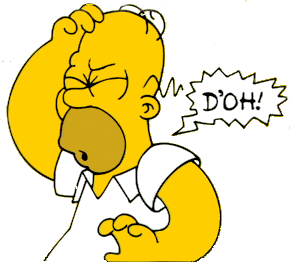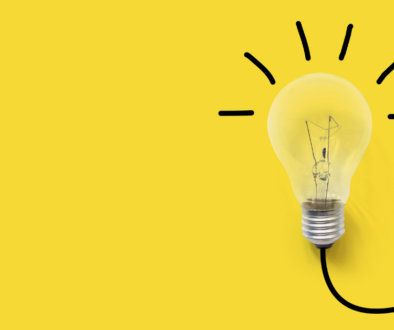Why are Mistakes Necessary?
 Mistakes are often penalized in our current educational system. For instance, you raise your hand with a wrong answer and it’s often followed by “wrong, anyone else?” Or you receive a grade on a test without ever exploring your mistakes in depth to learn what was done incorrectly and how it could have been approached differently or why it was very close but simply off by one or two minor details. Another demonstration of this punishment system is the rewards and positive labels that are assigned to students that make few or no mistakes and conversely the negative labels assigned to those that do make mistakes. Just imagine how poorly Thomas Edison would have scored in a class dubbed “Making a Light Bulb.” He would have been “wrong” over 1,000 times!
Mistakes are often penalized in our current educational system. For instance, you raise your hand with a wrong answer and it’s often followed by “wrong, anyone else?” Or you receive a grade on a test without ever exploring your mistakes in depth to learn what was done incorrectly and how it could have been approached differently or why it was very close but simply off by one or two minor details. Another demonstration of this punishment system is the rewards and positive labels that are assigned to students that make few or no mistakes and conversely the negative labels assigned to those that do make mistakes. Just imagine how poorly Thomas Edison would have scored in a class dubbed “Making a Light Bulb.” He would have been “wrong” over 1,000 times!
Making mistakes is at the center of learning. Neurons in our brain learn best from repetition and experience. The more often someone tries and fails, the more data the brain has the opportunity to capture and process. The brain begins to learn what works and what doesn’t and most importantly it learns WHY. These experiences form high-level neural connections that are incredibly difficult to break down and forget. What does this mean for the student that often answers questions correctly the first time around? It means he or she will lack the benefit of experience and thus be more susceptible to weak neural connections and more challenging recall of any knowledge acquired.
However, the student that makes several mistakes and is encouraged to learn why each attempt failed has the benefit of forming long lasting neural connections based on quality experiences. This student begins to learn how and why something works on a level that is easier to recall and apply in the future.
For these reasons, failure needs to be encouraged and celebrated. The more emphasis and attention that is placed on the mistake and its reason the more likely the student will truly understand the concept and significantly reduce the likelihood of making the same mistake again.
When I work with my math students I carefully watch them work out problems. When I spot a mistake, I do not say anything and allow it to continue. Sometimes students realize the mistake on their own, other times they complete the problem with the mistake never having been corrected. Once the occurrence of a mistake is announced, next begins the process of identifying what it was. This is a process I guide students through so that they can discover their own mistakes. Once they find it we discuss why it did not work and how significant the mistake really was. Often, their final answer is wrong, but the mistake that lead to it was minor. That is, their logic was correct except for a minor miscalculation. This is important to identify because it reinforces what the student did correctly.
Next time you make a mistake or work with a student that made a mistake, take the opportunity to celebrate it and discover why it is a mistake, how it could have been approached differently, and then approach it differently. That is when the reward of learning is truly achieved.
What great lessons have you learned from mistakes in school and/or life?


